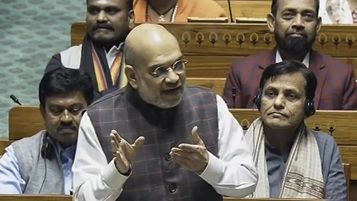The revised Bharatiya Nyaya Sanhita 2023, which seeks to replace the existing Indian Penal Code was introduced in the Parliament recently, and has significantly broadened the definition of terrorism. Under the proposed law, any damage or destruction to property intended for the defence of India or any other governmental purposes, even if done in a foreign country, will be classified as an “act of terror”.
In the earlier bill introduced in August, this definition had been limited to damage to government or public facilities, public places, private property within India and critical infrastructure.
According to sources in the Ministry of Home Affairs, the decision to include damage to property outside the country under the definition of “act of terror” was influenced by this year’s attacks on Indian consulates abroad, including in San Francisco, London and Canada by Sikh extremists. These cases are currently under probe by the National Investigation Agency.
In another significant addition to the bill, threat to “economic security” was included as an act of terror. The new bill specifies that any act conducted with an intent to threaten or likely to threaten the unity, integrity, sovereignty, security, or “economic security” of India, will be considered an act of terror. According to the bill, damaging India’s monetary stability by engaging in production or circulation of counterfeit currency is categorised as an act of terror.
The National Investigation Agency has been working to bust international rackets of counterfeit currency in the past and has registered several cases under the Unlawful Activities Prevention Act. Union Home Minister Amit Shah Tuesday introduced three revised criminal reform bills in the Lok Sabha, after withdrawing the versions that had been tabled by it in Parliament in August.
The Bharatiya Nyaya (Second) Sanhita, 2023, Bharatiya Sakshya (Second) Bill, 2023 and Bharatiya Nagarik Suraksha (Second) Sanhita, 2023, seek to replace the colonial-era Indian Penal Code, the Indian Evidence Act and the Code of Criminal Procedure, respectively.
The original bills had been referred to the Parliamentary Standing Committee on Home Affairs for consideration, after being tabled during the monsoon session of Parliament. After the new revised bills were introduced Tuesday, Shah said that a few major changes in the three bills had been made in three-four sub-sections, while the rest of the changes were “mainly grammatical in nature”. He added that a discussion on the bills will take place on 14 and 15 December.








